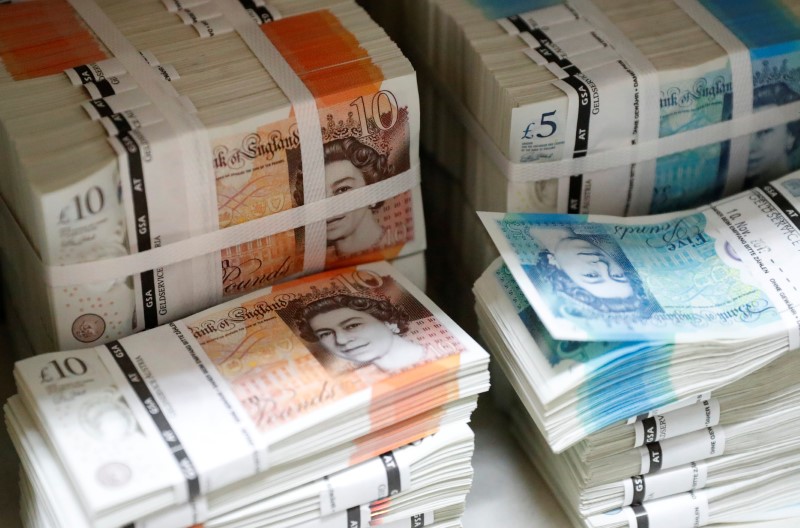 © Reuters.
© Reuters.
By Yasin Ebrahim
Investing.com -- The pound is battling to limit losses Tuesday after falling below the key $1.2 level against the dollar, but the fight could prove futile as a less hawkish Bank of England and potential trade war risk the U.K. economy slipping into the abyss.
GBP/USD fell 1.17% to $1.1194.
“A trade conflict with the EU would probably intensify the recession risk further,” Commerzbank said in a note. “As a result, Sterling is likely to remain under pressure over the coming months.”
UK Prime Minister Boris Johnson introduced a bill to parliament earlier this week that threatens to scrap Norther Ireland protocol -- a key part of the Brexit deal that governs the movement of goods and services at the Irish border between Northern Ireland and the Republic of Ireland.
Under the Brexit deal struck in 2019, both sides agreed that – following the UK’s exit from the EU -- Northern Ireland would still follow EU free movement of goods rules and EU Customs Union requiring checks on certain goods entering Northern Ireland from the rest of the U.K.
The deal would help prevent the need for a hard border between Northern Ireland and the Republic of Ireland, which is part of the EU.
But the UK prime minister has argued that the checks of goods from Britain to Northern Ireland are too onerous and costly for businesses. The EU disagrees, saying Johnson’s proposed bill, which still requires the backing of parliament, is a breach of international law.
A trade war is the last thing the U.K economy needs after suffering a surprise decline in growth in April as spiraling food and energy costs have put the squeeze on consumers.
The Bank of England's willingness to combat inflation with steeper rate hikes isn't particularly strong as the central bank's hands are tied by a weakening economy.
“The Bank of England (BoE) has been concerned for some time about the economy and sees the risk of a recession which is why it prefers gradual monetary policy tightening,” Commerzbank added ahead of the BoE’s interest rate decision due Thursday.
The BoE is expected to rate its benchmark rate by 25 basis points on Thursday, disappointing those calling for the bank to follow some of its central bank peers with a 50 basis point hike.
If the rate hike is accompanied by a hawkish tone, or a signal that the BoE is willing to do more, then that may only add to the wall of recession worry that has pushed the pound below pre-pandemic levels.
A more decisive approach Commerzbank said, might "fuel concerns about a recession, which in turn would put pressure on sterling."

